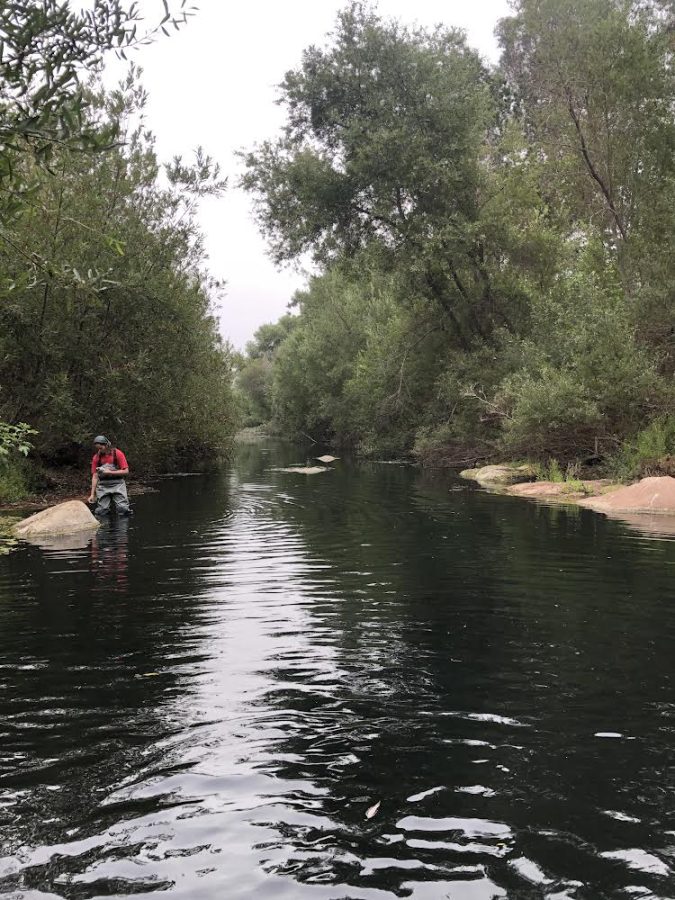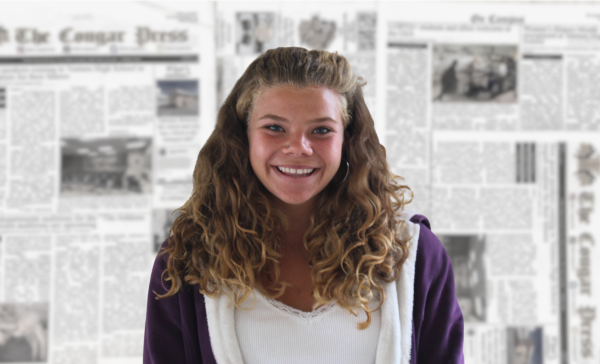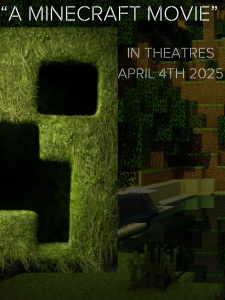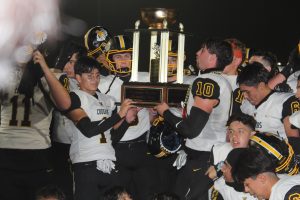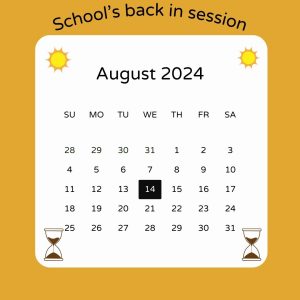Out in the field
February 10, 2022
A hidden gem in VHS science pathways
VHS offers many unique classes, especially in the science pathway. However, field studies is a class that is made up of about 20 students who get to have first-hand experiences with fieldwork, working with professionals, interpreting data from their findings and participating in internships. When asked if he would recommend this class to other students, senior Ryan Palmisano said, “One hundred percent yes. This class offers the unique opportunity to test your knowledge, problem-solving skills, and curiosity. Each day was a new adventure for me, and I enjoyed every minute of being out there.”
Jared McEntyre, the Field studies teacher describes his class as one small piece in the puzzle of the science classes available at VHS. Palmisano’s favorite memory has been taking pictures with his trail camera, “I set up my trail camera right on the riverbank and left it out for a week. It proceeded to take multiple pictures of a great blue heron and a racoon. My favorite photo it took was of a belted kingfisher diving into the water. With the trail cameras, I got to see the world when humans aren’t there to interfere, and it was beautiful. I never thought I would see a kingfisher here in Ventura, and yet here they are.”
Field studies have not only impacted the way students look at the world but what they want to do with their futures as well, “Field studies has inspired me to incorporate environmentally friendly ideas into what I want to do. Because I am interested in architecture, field studies have made me want to make sustainable designs,” said senior Tess Luoma.
Senior Lucy Eckberg said, “After taking environmental science I had an interest in studying something in that field. Field studies have shown me a lot of different job opportunities and ways people apply it to their everyday lives and have only further confirmed it’s something I want to study.”
Internships at places such as California Institute of Environmental Studies, Rincon Environmental Consultants and Ventura Land Trust are all available to students in their second semester of Field Studies. According to McEntyre, “Because of COVID some of our internship sites are not working traditional schedules so they are not accepting interns that just means that that’s a little more challenging.”
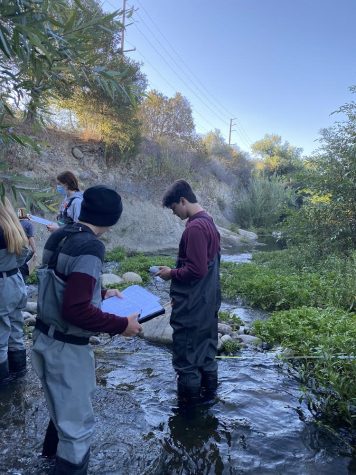
Despite a few complications students are looking forward to their internships, “I don’t have mine yet but I am excited for whatever I get,” said Eckberg.
Palmisano described the internship experience, “There are many different internships that are offered to us. My personal choice would have been to intern for the Rincon Vitova Insectary, where they hatch and cultivate predatory insects as an alternative to pesticides. But that is just one of the internship opportunities, there are many more to choose from if you wish to continue the class into the second semester.”
However this class is not for everyone. “Do you like working outside? Do you like working in the field? Do you see yourself going into a career in environmental science?” Questioned McEntyre, he encouraged students to ask themselves this before signing up. Students must also have been enrolled in AP Environmental Science (APES) as a prerequisite.
Palmisano said, “Now that I have done the fieldwork, I understand and appreciate the class even more. I got to use my knowledge and apply it to a real-world situation. This class helped me develop a better understanding of the world around us and our duty to upkeep and maintain the natural beauty the world holds.”




